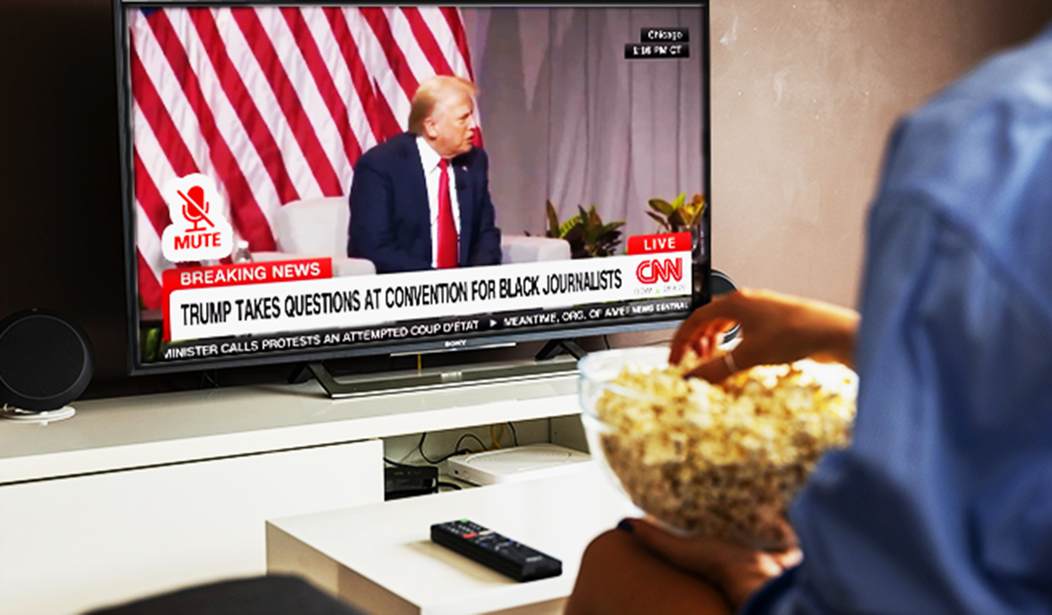Epistemology is a branch of philosophy. It literally means “the study of knowledge.” Epistemologists, then, are those philosophers who specialize in examining questions like: Is knowledge possible? If so, then how so? Does knowledge derive from reason, sense-perception, or some other source(s)? Is there a difference between knowledge, on the one hand, and, on the other, belief or opinion? If so, in what does this distinction consist?
Another epistemological inquiry, and one that is relevant here, concerns the nature of a “fact”: What is a fact? Do facts exist in the world? How is a fact different from an opinion?
Unfortunately, like virtually everything else, epistemology has become politicized. The phenomenon of self-styled “fact-checkers” is one particularly prominent case in point. For persons and/or organizations to profess themselves “fact-checkers” is equivalent to professing themselves “truth-tellers” or “reality-checkers.” The only thing worse than the arrogance of such claims is their disingenuousness, issuing, as they do, from political partisans who are only interested in “fact-checking” the assertions of their rivals—never those of their fellow partisans.
Undoubtedly, the self-styled “fact-checkers” are doing precisely what the German philosopher Friedrich Nietzsche insisted that all of us do in every area of human life. Nietzsche contended that all appeals to God, Reason, Truth, Human Nature, Reality, fact, Natural Law, Natural Rights, comprehensively, all appeals to objectivity, are fictions, smoke screens designed to conceal that which truly motivates us: “the Will to Power.” Humans beings, like all living organisms, are driven to dominate their environments. Humans, though, have psychological and emotional interests that they advance by assuming maximal control over their surroundings. One way for a person to accomplish this is by manipulating others to adopt his or her worldview. Appeals to objectivity, to impartiality, are devices that have always proven to be conducive to this end.
Recommended
Nietzsche famously, or infamously, depending upon one’s point of view, declared that “God is dead.” What Nietzsche, the atheist, purported to comment upon was the decline in the Christian faith that had informed the collective consciousness of European peoples for the last two millennia. He feared that this loss of belief in God could lead to nihilism, a belief in nothing. Interestingly, Nietzsche held that the loss of belief in God isn’t just the loss of a single belief. The belief in God, he thought, entailed belief in all of the ideas of objectivity mentioned above: If there is no God, then there is no human nature, no Truth, no Reason, no Reality (as in an objective structure that transcends human perception and with which we must align ourselves if we are to have knowledge).
And there are no “facts.”
Whether Nietzsche was correct in his assessment of the implications of a loss of belief in God is a matter of debate. And one certainly needn’t accept his contention that all appeals to objectivity are deceptive tricks for asserting his “Will to Power.” As a Christian, I certainly do not. Yet that such references can fulfill this function, and that they have indeed been used for purposes of manipulation is beyond doubt.
Self-proclaimed “fact-checkers,” insofar as they belong to large and influential corporate media organizations, and inasmuch as they purport to “fact-check” only their political opponents, would appear to fit quite nicely Nietzsche’s profile of the Will to Power in action.
Phenomena in the world, particularly those phenomena that we refer to as “events,” and “political” events at that, admit of multiple characterizations. This doesn’t mean that there is no objective truth of the matter, or that all descriptions are equally legitimate. What it does mean, though, is that precisely because our descriptions must be offered in terms of some vocabulary or other, it is impossible to avoid offering one that is free of all bias. More exactly, bias is baked into the cake of any description, and never more so than when that description is of an event of political import.
In other words, the line between what we call “opinion” and “fact” is far from the hard and fast distinction that we treat it as being.
Now, some characterizations are less biased than others, some are more accurate than others, but the idea that there’s a value-neutral account that a “fact-checker,” and only a “fact-checker,” can offer has to be relegated to the realm of fictions that Nietzsche derided.
And for this reason, it is high time that we rid ourselves of the delusion that some media personalities are objective, impartial, disinterested “journalists” concerned only to “report” the “facts,” while others are just “commentators” who are only interested in sharing their “opinions.” Presumably, given this conventional distinction, commentators don’t give a damn about facts, about truth. Or maybe they do but aren’t qualified to trade in facts and truth because they aren’t “journalists.”
That those who are regarded as “journalists” have tended to express their partisan prejudices with a more somber tone than that with which “commentators” have articulated theirs certainly doesn’t mean that “journalists” have been any less interested than “commentators” have been in shaping public perceptions. Nor, then, does it mean that “journalists” have refrained from advancing their political preferences. They most definitely, demonstrably, have not.
But the façade of the objective journalist has proven itself an effective “Nietzschean” strategy by which to promote partisan agendas. In recent decades, and never as much as today, the façade has all but dissolved. As the media’s abysmal approval rating has made glaringly evident, it’s now an open secret among practically everyone that the persona of the objective, the prejudice-free journalist has only ever been a persona.
To restore whatever measure of good faith in it that those in the media can salvage, perhaps it is time to reject the journalist/commentator distinction and recognize, at long last, that the media consists now, and always has consisted, of nothing but commentators.

























Join the conversation as a VIP Member